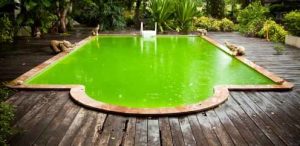Protecting Your Pool During the Hot Summer Days
 Summer is a very enjoyable time in South Florida, and with the amount of pools in homes all across the region, most Floridians take this time of the year to enjoy their pools wether at their own homes or at their condo’s public pools. Regardless on which pool we are talking about, the summer can be relentless with your pool and here’s how you can protect it.
Summer is a very enjoyable time in South Florida, and with the amount of pools in homes all across the region, most Floridians take this time of the year to enjoy their pools wether at their own homes or at their condo’s public pools. Regardless on which pool we are talking about, the summer can be relentless with your pool and here’s how you can protect it.
On a hot sunny day, up to 95% of a pool’s chlorine can be lost into the atmosphere as quickly as 3 and a half hours. Chlorine is mixed to the pool water and hot weather increases evaporation by heating up the water, making the chlorine evaporate with the water, which messes up its pH levels, creating the perfect environment for algae and bacteria to grow.
Did you know that on a sunny day, up to 95 per cent of a pool’s chlorine can be lost into the atmosphere in as little as three and a half hours? That’s because hot weather heats up swimming pool water where it then increases evaporation, depletes chlorine levels and messes with pH levels – all of which creates the perfect environment for algae and bacteria to grow.
Throughout the warmer months, specially during summer, swimming pools need a little extra attention to keep the water clean and clear. The hot weather promotes the blooming of algae in your pool, and just because they are microscopic in size, they go unnoticed until you see the water becoming green, and then it’s too late. You’ll have to shock treat your pool and will spend even more money treating the pool instead of having taking good care of it preventively.
So, what do you do to prevent that microscopic algae to grow and turn your pool green? You should first of all, regularly test the pool water and treat it with chlorine, if chlorine is low, or algae and bacteria growth is detected. Using a phosphate starver to deter algae from taking hold is also recommended, since algae feed on phosphates and without them, algae will not survive.
No matter how often you clean your pool, phosphates are unfortunately unavoidable. Thriving in warm water, they are introduced into the pool from bird and bat droppings and detergent residues on swimming costumes. As it gets hotter during summer and the pool gets used more often, more chlorine is required to keep it sanitized and free of the algae. If you have a salt chlorinated pool, it is therefore recommended pressing the ‘super chlorinate’ button to kill algae.
In addition to killing algae, chlorine has the added benefit of sanitizing your pool by killing bacteria which can make swimmers sick. Every pool, indoors and out, is vulnerable to bacteria as it enters via top-up water and debris such as leaves and dirt. Top-up water also gradually dilutes chlorine, phosphate starver and salt levels and alters pH levels. A pH imbalance affects the efficiency of chlorine and swimmers’ comfort: high pH levels, which turns the water cloudy and causes scaling on the pool surface and in the salt chlorinator, can be addressed by adding acid to the water. A low pH, or high acid level, which makes the water sting eyes and skin and etches away the pool surface can be treated with a ‘buffer’ or alkali.





